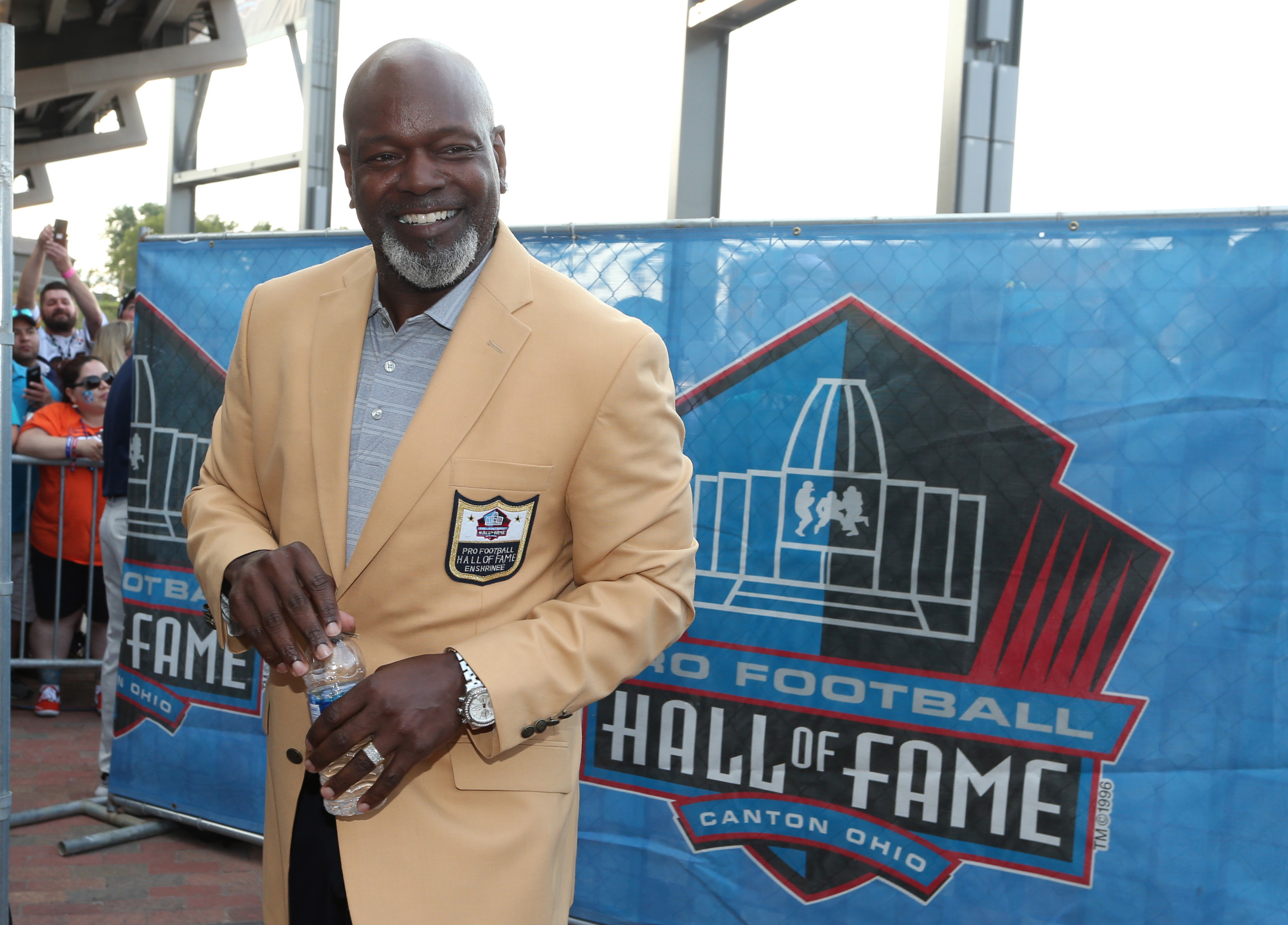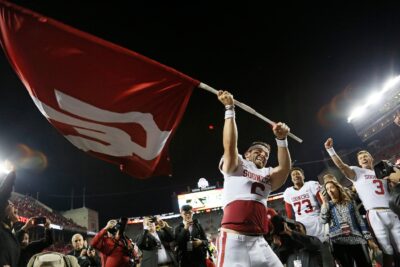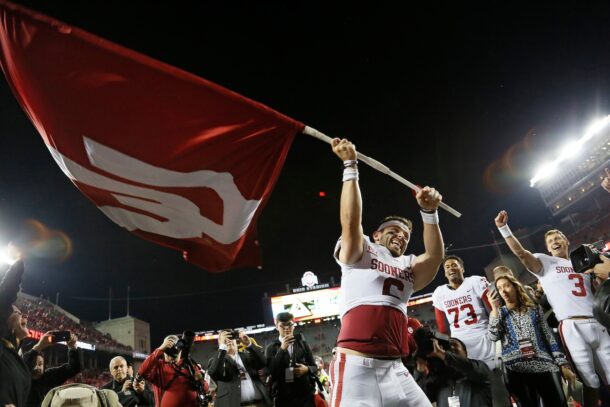
Just like the West Division, the SEC East has some of the greatest running backs in league history.
Here’s a look at the best each East program has produced.
Florida: Emmitt Smith
Emmitt Smith was not just a generational talent, but an all-time great for the Gators, as he possesses the top two single seasons and single games in Florida history. In fact, Smith’s 316-yard effort against New Mexico is behind only Darren McFadden and Frank Mordica’s shared record of 321 for the best in conference history. Smith is 235 yards back of Eric Rhett for Florida’s career mark, and if he hadn’t missed 2 games in his sophomore season, he more than likely would’ve done more in 3 years than Rhett did in 4.
Smith’s teams weren’t very good, maxing out at 7 wins, but his talent was undeniable. With a bulldozing style and penchant for staying healthy, Smith would go on to have a Hall of Fame career in the NFL that ended with him capturing nearly every career running back stat before retiring.
Georgia: Herschel Walker
Herschel may be the overall GOAT of SEC running backs, and his caeer rushing mark of 5,259 is about as untouchable of a record as there is in the conference. Walker came along at a time when the NFL refused to draft non-seniors, but due to the perfectly-timed rise of the USFL, he was able to forego his senior season anyway. If Walker had stayed for a fourth year, we may be looking at the NCAA’s all-time leading rusher, and perhaps the SEC’s only 2-time Heisman winner or a fourth-straight SEC championship for Georgia.
As it stands, the 3-time All-American finished with the most rushing yards and the second-most rushing touchdowns (49) in conference history, a Heisman trophy, a national title and a legacy that will be remembered forever. Walker’s most memorable moment in college was one of the most iconic in college football history: when he trucked Tennessee safety Bill Bates. Many remember the hit but few know that it was Walker’s college debut, or that he was a freshman.
Kentucky: Moe Williams
Before LeBron James was carrying former Alabama PG Mo Williams to the NBA All-Star Game, there was a more famous Moe Williams in the SEC: Kentucky’s greatest running back of all time. This actually may be the closest battle in the SEC, as Sonny Collins is right there, but the two players have similar careers despite Collins playing an extra year. How close? They actually have the same number of career touchdowns: 26.
Williams was better on a per-game and per-season basis, however. He has one of the greatest seasons in SEC history, rushing for 1,600 yards and 17 touchdowns in a junior year that surpassed the best seasons by backs like Emmitt Smith, Nick Chubb and Bobby Humphrey.
Mizzou: Henry Josey
Honestly, the best rusher in Mizzou history is probably Brad Smith, but without rules, the world would plummet into anarchy.
Instead, let’s look at Henry Josey, who was the best per-year rusher and one of the winningest 3-year players in Mizzou history. A severe leg injury led him to miss all of the 2012 season, so Josey pretty much avoided the one bad Mizzou year in that span and was a driving force for a lot of the Tigers’ 30-10 record during his 3 years in Columbia.
He ran for nearly identical totals of 1,168 and 1,166 yards in his last 2 seasons, one in the Big 12 and one in the SEC, where the Tigers won the East with a 12-2 record. It’s a little awkward to place him in terms of the conferences, especially because only his 16-touchdown redshirt junior season was in the SEC, but he’s the only player other than Brad Smith to appear twice in the top 10 on the single-season rushing leaders at Mizzou. The Tigers have had a lot of 4-year players at the running back position, but Josey’s 3 seasons were some of the most impressive ever.
South Carolina: George Rogers
One of the easiest names on this list, George Rogers stands head, shoulder and maybe even torso over the best back from a ton of SEC schools. USC’s only Heisman winner, he quite literally carried Carolina from two 5-win seasons to two 8-win seasons as his touches doubled in the middle of his 4-year career.
In the SEC, Rogers would be second to only Herschel Walker in rushing yards with 5,091 but his rather average 31 touchdowns show that the only way the Gamecocks could move the ball between the 20s was directly on his back. He stood 6-2 and weighed 230 pounds, but played much bigger than that. Once he got a head of steam, it was over for the defense.
He would go on to achieve nearly every football accolade other than a college national championship and an NFL MVP. He was a No. 1 overall draft pick, a Super Bowl champion, Rookie of the Year, and he led the league in touchdowns and rushing yards in two separate seasons. Though he never played a game in the SEC, he is still an SEC legend.
Tennessee: Travis Henry
At Tennessee, it’s a battle of the eras. Johhny Majors? Gene McEver? Beattie Feathers? Some would argue that one of the old-timey Vols could still hold the top spot in Knoxville. Due to the change in eras with things like integration, longer schedules, and the evolution of offenses, it’d take a whole lot of imagination to see those guys enjoy the same success as the late 90s duo of Jamal Lewis and Travis Henry.
Likewise, those late 1990s Tennessee teams were so stacked that the best backs actually played at the same time, taking stats away from each other. One could argue that if Jamal Lewis had stayed healthy, he would’ve done more in 3 years than Henry did in 4. That didn’t happen, however, and Lewis’ season-ending ACL injury led to Henry being the starting running back on the last team to win a national title. It also propelled Henry to the career rushing yardage mark at Tennessee at 3,078. He played in 11 games in three straight seasons, and his 1,314-yard senior season in 2000 was the cherry on top.
Vanderbilt: Ralph Webb
Ralph Webb is about as statistically complete as a running back can be with regards to school records. His career rushing yardage mark (4,173) is over 1,000 yards clear of second place. His 1,384-yard season in 2016 was the best by any Commodore rusher in history, and he also holds the third-place mark with a 1,152-yard 2015 season. His 211 yards against Middle Tennessee State in 2016 was the third-best in Vandy history, which includes an SEC record 321 yards by Frank Mordica back in 1979.
Basically, Webb is Captain Vanderbilt. The only thing he didn’t do was win, as his teams topped out at 6 wins and only attended 1 bowl game. Some of his stats can also be attributed to a high volume, as he nearly doubled Zac Stacy’s carries and had a rushing average nearly a whole yard less than Stacy. Still, it’s hard to argue that Webb wasn’t consistently special. He ran the ball 931 times, the second-most in SEC history, and carried a Vanderbilt offense that was more commonly lost than not during his 4-year tenure.
A former resident of both Baton Rouge and the heart of Crimson Tide country, Will Ogburn handles multimedia content and news coverage for Saturday Down South.







